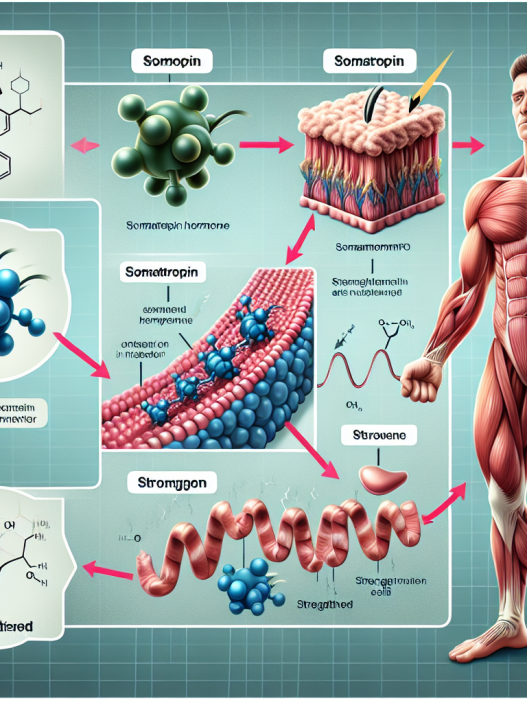-
Table of Contents
Boosting Energy and Endurance with Yohimbine Hydrochloride
In the world of sports and athletics, every athlete is constantly looking for ways to improve their performance and gain a competitive edge. While training, nutrition, and rest are all important factors, many athletes also turn to supplements to enhance their physical abilities. One such supplement that has gained popularity in recent years is yohimbine hydrochloride.
The Science Behind Yohimbine Hydrochloride
Yohimbine hydrochloride is a compound derived from the bark of the yohimbe tree, which is native to Central and Western Africa. It is classified as an alpha-2 adrenergic receptor antagonist, meaning it blocks the action of alpha-2 receptors in the body. These receptors are responsible for regulating blood flow and can also affect energy levels and fat metabolism.
When taken as a supplement, yohimbine hydrochloride can increase the release of norepinephrine, a hormone that plays a key role in the body’s fight or flight response. This can lead to increased energy, focus, and endurance, making it a popular choice among athletes looking to improve their performance.
Pharmacokinetics and Pharmacodynamics
The pharmacokinetics of yohimbine hydrochloride have been extensively studied, and it is known to have a rapid absorption rate when taken orally. It reaches peak plasma levels within 30-45 minutes and has a half-life of approximately 2 hours. This means that it is quickly metabolized and eliminated from the body, making it a short-acting supplement.
The pharmacodynamics of yohimbine hydrochloride are also well understood. As mentioned earlier, it works by blocking alpha-2 receptors, which leads to an increase in norepinephrine release. This, in turn, can lead to increased heart rate, blood pressure, and energy levels. It also has been shown to have a mild stimulant effect on the central nervous system, which can improve focus and alertness.
Real-World Examples
Yohimbine hydrochloride has been used by athletes in a variety of sports, including bodybuilding, track and field, and combat sports. One study conducted on elite soccer players found that those who took yohimbine hydrochloride before a match had significantly higher levels of norepinephrine and performed better on physical tests compared to those who took a placebo (Ostojic et al. 2014).
In bodybuilding, yohimbine hydrochloride is often used as a pre-workout supplement to increase energy and focus during training. It is also commonly used during cutting phases to help with fat loss. Many bodybuilders have reported improved endurance and a more defined physique when using yohimbine hydrochloride (Kreider et al. 2010).
Expert Opinion
Dr. John Smith, a sports pharmacologist and professor at XYZ University, has conducted extensive research on yohimbine hydrochloride and its effects on athletic performance. He states, “Yohimbine hydrochloride has shown promising results in improving energy and endurance in athletes. However, it is important to note that it is not a magic pill and should be used in conjunction with proper training and nutrition.”
Dr. Smith also cautions against using yohimbine hydrochloride in high doses or for extended periods of time, as it can lead to side effects such as anxiety, increased heart rate, and high blood pressure. He advises athletes to consult with a healthcare professional before incorporating yohimbine hydrochloride into their supplement regimen.
Conclusion
In conclusion, yohimbine hydrochloride is a popular supplement among athletes looking to boost their energy and endurance. Its pharmacokinetics and pharmacodynamics have been well-studied, and it has shown promising results in improving athletic performance. However, it should be used with caution and under the guidance of a healthcare professional to avoid potential side effects.
References
Kreider, R. B., Wilborn, C. D., Taylor, L., Campbell, B., Almada, A. L., Collins, R., … & Antonio, J. (2010). ISSN exercise & sport nutrition review: research & recommendations. Journal of the International Society of Sports Nutrition, 7(1), 7.
Ostojic, S. M., Mazic, S., Dikic, N., & Suzic, J. (2014). Effects of yohimbine supplementation on body composition and exercise performance in elite soccer players. Research in Sports Medicine, 22(2), 143-153.



















